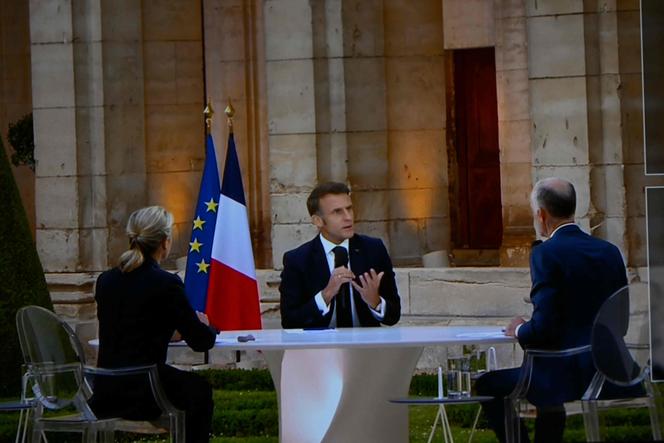


French President Emmanuel Macron announced during a TV interview on Thursday, June 6, that France will provide Ukraine with its Mirage combat aircraft to help the country's defense against Russia's aggression. He spoke after Ukrainian President Volodymyr Zelensky joined world leaders in France to commemorate the D-Day invasion.
Zelensky was also in France to seek more Western help even as his forces battled to stave off a Russian onslaught near the eastern city of Kharkiv in a war that has become Europe's biggest conflict since World War II.
Macron told the French public broadcaster he will announce Friday a new cooperation with Ukraine and the sale of French-made combat aircraft, the Mirage 2005, which will "allow Ukraine to protect its soil, its airspace" against Russian attacks.
France will also start training Ukrainian pilots, Macron said as he reiterated that Ukraine should be allowed to use weapons provided by its Western allies to target Russian military targets and "neutralize the points from which (the country) is being attacked."
The Netherlands and Denmark promised last year to give F-16 warplanes to Ukraine and the United States is training Ukrainian pilots at a base in Arizona. Macron did not specify when the French combat aircraft would arrive.
Zelensky and his wife, Olena, attended the 80th-anniversary events in Normandy with President Joe Biden and European leaders who have supported Kyiv's efforts in the war, now in its third year. Zelensky will meet with French officials in Paris on Friday.
Although the promise of French aircraft will be welcome in Kyiv, Ukraine is currently fighting to hold back a recent Russian push in eastern areas, including the border regions of Kharkiv and Donetsk, that seeks to exploit Kyiv's shortages of ammunition and troops along the roughly 1,000-kilometer (620-mile) front line.
Ukraine has framed the conflict as a clash between Western democratic freedom and Russian tyranny. Russia says it is defending itself against a menacing eastward expansion of the NATO military alliance.
Russia on Thursday detained a Frenchman working for a Geneva-based conflict mediation NGO, accusing him of gathering military information and failing to register as a "foreign agent", Moscow officials said. "It is one of our citizens working for a Swiss NGO... it was in no way someone who was working for France," President Macron told French television. "We will follow this closely and he will receive all consular protection," Macron said.
Under Russian laws used to crack down on Kremlin critics, anybody who receives foreign support or who is under "foreign influence" must register as a "foreign agent". A video published by Russia's Investigative Committee, which probes major crimes, showed a man being approached by officers on a restaurant terrace before being led into a police van.
In Paris, the foreign ministry said it was aware of the arrest of the French citizen and said its Moscow embassy had requested consular protection for him and also more details from the Russian authorities.
Macron also warned Thursday that the EU risked being blocked by a big far-right presence in the European Parliament after this week's elections.
"If France sends a very big far-right delegation, if other big countries do this, Europe could be blocked," Macron told French television. "Because what is a Europe where the extreme right is strong?" he asked, warning of the risk of paralysis in decision-making in case of another pandemic like Covid-19 or in dealing with illegal immigration.
With the far right well ahead in opinion polls in France, Macron added: "We must on June 9 [when France votes] fight to defend those who fight for Europe, because Europe protects us."
Macron's governing centrist coalition appears set to win just half of the number of votes of the far-right Rassemblement National (RN) in France, according to polls, in what would be a huge setback for the president.
He urged the French not to share the regrets of Britons who did not vote against Brexit in the 2016 referendum, only to see their country leave the European Union. "Come on, go vote on June 9, it is very important. I say this because I always think back to our British friends who did not go to vote on Brexit day. Not going to vote is leaving the future of our continent and our country to others," he said.
